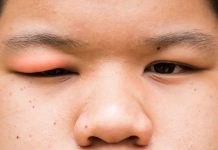Bad breath, medically called halitosis, can result from poor dental health habits or may be a sign of other health problems. Certain types of foods you eat and unhealthy lifestyle habits can worsen bad breath. You can take steps to prevent and treat halitosis, at home and with the help of your dentist or doctor.
Bad Breath Causes
Bad breath can result from several factors, from medical conditions and medications, bad habits such as smoking, and the foods you eat.
Food and bad breath
The food you eat begins to break down in your mouth, leading to a buildup of bacteria that can cause bad breath. Also, foods are absorbed into your bloodstream and move to the lungs, affecting the air you exhale. If you eat foods with strong odors (such as garlic or onions), brushing, flossing, and even mouthwash can cover up the odor only temporarily. The odor will not go away completely until the foods have passed through your body. Other common foods that can cause bad breath include:
- Cheese
- Pastrami
- Certain spices
- Orange juice or soda
- Alcohol
Likewise, dieters who don’t eat often enough can have bad breath. When your body breaks down fat, it releases chemicals that can give your breath an unpleasant smell.
Hygiene habits
Most of the time, bad breath results from not taking good care of your teeth, such as not brushing and flossing daily and not seeing the dentist regularly for a deeper cleaning. This ups your risk of gum disease and allows bacteria to build up in the spaces between your teeth and gums. The subsequent breakdown of that bacteria releases chemicals that give your breath a rotten egg or sulfur-like smell.
Inflammation of the gums (gingivitis) from poor dental hygiene can also cause bad breath. Also, odor-causing bacteria and food particles can cause bad breath if you don’t clean your tongue or dentures.
Infections. Sinus and throat infections can cause postnasal drip, a source of bad breath. Pneumonia (a lung infection) can make you cough up an unpleasant fluid that smells bad. Bacterial infections can lead to tooth abscesses, or pockets of pus, that may make your breath stink.
How to Get Rid of Bad Breath
There are some quick and easy ways to get rid of bad breath. Just remember, the odor from what you eat can stick around until the food works its way completely out of your system — up to three days later.
Bad breath can be reduced or prevented if you:
- Treat what’s causing your bad breath. If it’s due to an underlying health condition, treating that condition should improve your breath.
- Brush and floss more often. Practice good oral hygiene. Brush twice a day with fluoride toothpaste to remove food debris and plaque. Brush your teeth after you eat. (Keep a toothbrush at work or school to brush after lunch.) Replace your toothbrush every three to four months or after an illness. Trapped food also adds to the problem. Use floss or an interdental cleaner to remove food particles and plaque between teeth at least once a day.
- Rinse your mouth out. A mouthwash adds extra protection by getting rid of bacteria. You can also help your breath if you swish your mouth with plain water after you eat. It can help loosen up and free those trapped bits of food particles that get stuck in your teeth.
- Scrape your tongue. The coating that normally forms on your tongue can be a host for smelly bacteria. Tongue scrapers are designed specifically to apply even pressure across the surface of the tongue area and clear any buildup.
- Avoid foods that sour your breath. Onions and garlic are big offenders. But brushing after you eat them doesn’t help.
- Skip after-dinner mints and chew gum instead. The bacteria in your mouth love sugar. They use it to make acid. This wears down your teeth and causes bad breath. Chewing sugarless gum or sucking on sugarless candy also stimulates the production of saliva, which helps wash away food particles and bacteria. Gums and mints containing xylitol are best.
- Keep your gums healthy. Antiseptic mouthwash can help kill bacteria that cause bad breath and plaque that can lead to gingivitis — an early, mild form of gum disease.
- Moisten your mouth. You can get tooth decay and bad breath if you don’t make enough saliva. If your mouth is dry, drink plenty of water during the day. You can also try a humidifier at night to moisten the air in your house.
- Keep your dental devices clean. Dentures should be removed at night and cleaned thoroughly before being placed in your mouth the next morning. Clean braces and retainers as directed by your dentist.
- See your dentist regularly, at least twice a year. They will do an oral exam and professional teeth cleaning and will be able to find and treat periodontal disease, dry mouth, or other problems that may be the cause of bad breath.
- Stop smoking and chewing tobacco-based products. Ask your dentist for tips on kicking the habit.
- Eat more fruits and vegetables and less meat. Apples, carrots, celery, and other hard fruits and vegetables help clear odor-causing plaque and food particles from your mouth.
- Keep a log of the foods you eat. If you think they may be causing bad breath, bring the log to your dentist to review. Similarly, make a list of the medications you take. Some drugs may play a role in creating mouth odors.
Credit: webmd









